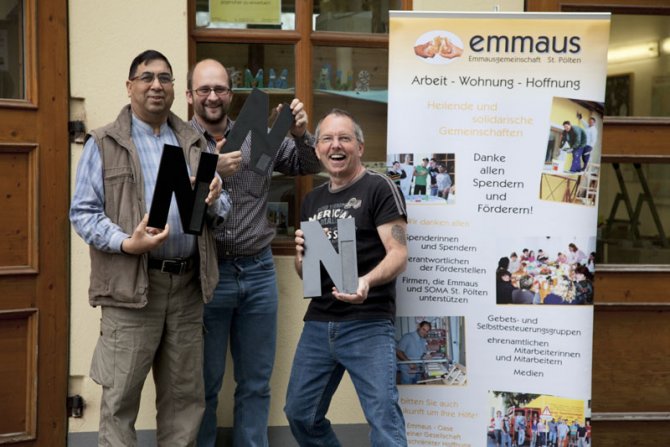Social enterprises
“Social enterprises“ or “social (inclusion) enterprises“ are occupational projects on the “expanded labor market”, which mostly have recourse public subsidies. Socio-economic enterprises (SEE) or non-profit occupational projects are predominantly subsidized by the employment service and attributed to the “2nd labor market”. They pursue the target of inclusion of long-term unemployed persons into the so-called “first labor market”. Workshops on the 3rd labor market, on the contrary, occupy persons with learning disabilities, physical impairments or persons with mental impairments, and offer to these persons very distant from the labor market long-term or even permanent employment. Furthermore, there are numerous non-profit associations and private initiatives that occupy disadvantaged persons without having recourse to public subsidies.
Regional, ecological and innovative offers
The economic range of social enterprises is manifold. In the field of production, the range reaches from wood and metal to plants and vegetables. In the field of services, in addition to green space care offers in the field of office services, such as enveloping, sending etc., performance of production steps etc. can be found.
Many social enterprises also attach importance to regional and ecological preliminary products, to recycling, re-use and up-cycling. They create creative individual products with a large share of handcraft and tailored services, which are handled regionally.
Creation of opportunities of participation and inclusion
Social enterprises fulfill an important social function through creation of opportunities of participation for disadvantaged persons on account of (gainful) occupation. For social enterprises, man is in the center of attention, with the target of offering sensible and individually fulfilling activities as well as qualification. The products and services produced have to come up to these demands.
Ever more social enterprises attach importance to positioning their products and services as high-quality products, and not selling them on account of compassion. It is a matter of regional high-quality products, which are often handcrafted and produced under ecological aspects.
goodworks support social enterprises in marketing, development and networking!
The potential of social economy on a European level
Social enterprises and occupational projects increasingly receive attention also by the European Commission. The Directorate-General for Employment, Social Affairs and Equal Opportunities of the European Commission draws the following conclusions from the WISE project (“Work Integration Social Enterprises” as a tool for promoting inclusion):
Social economy has steadily increased in significance, and still has a considerable potential, which yet has to be used, in order to create high-quality employment, to attract and retain people currently excluded from the labor market in employment, to strengthen social, economic and regional cohesion, to give rise to social capital, to foster active citizenship, solidarity and an economy with democratic values, to support sustainable development and social, ecological and technical innovation.
Explicitly the sustainable effects in the fields of job creation, safeguarding social cohesion and contributions towards ecological and technical innovations are mentioned in this place.

